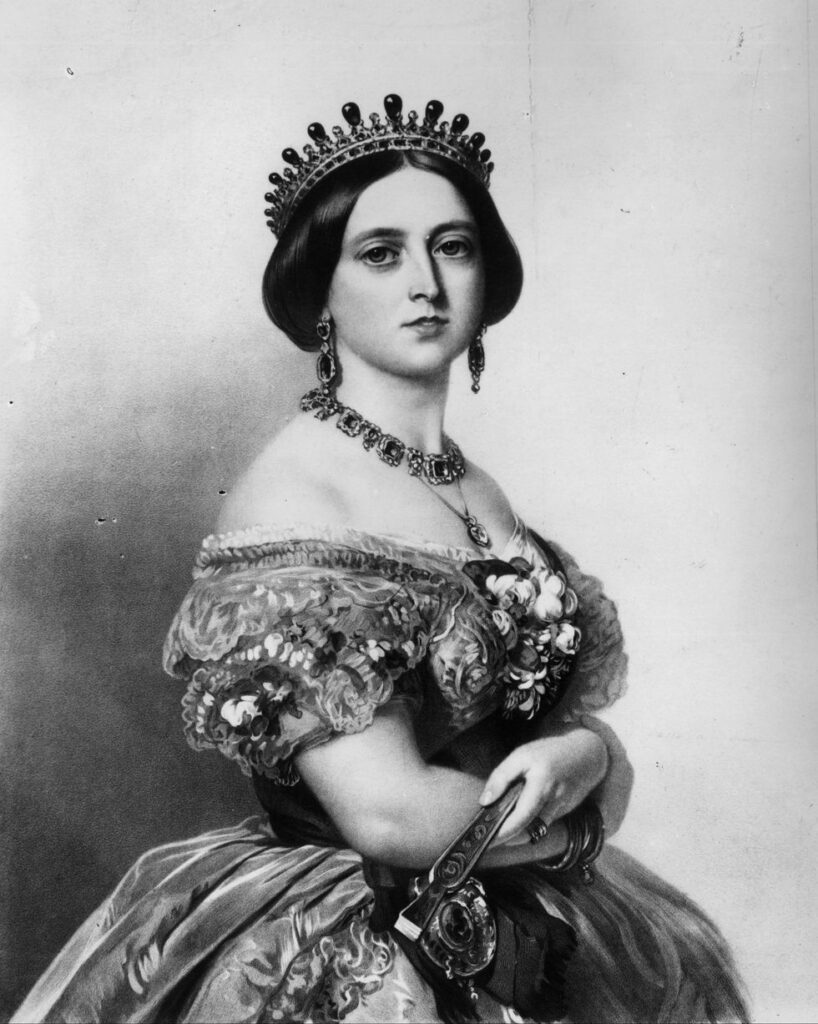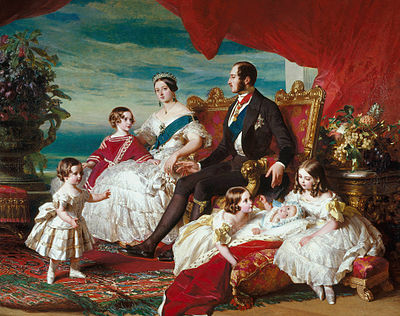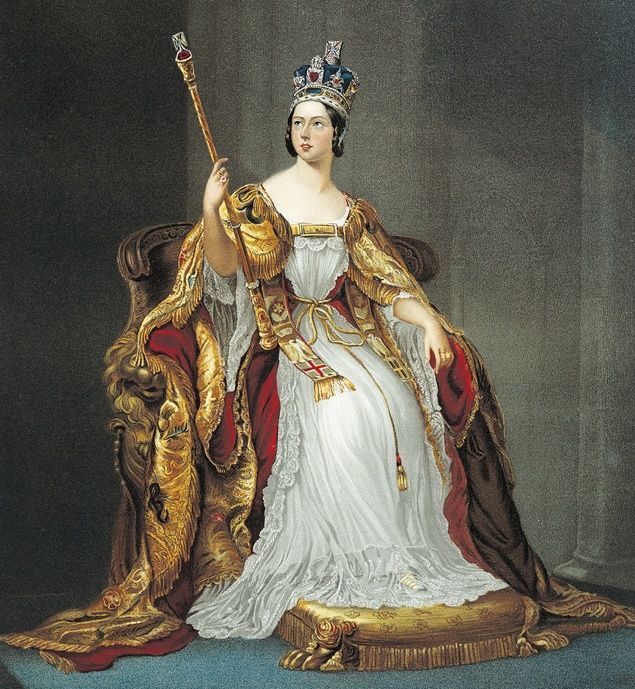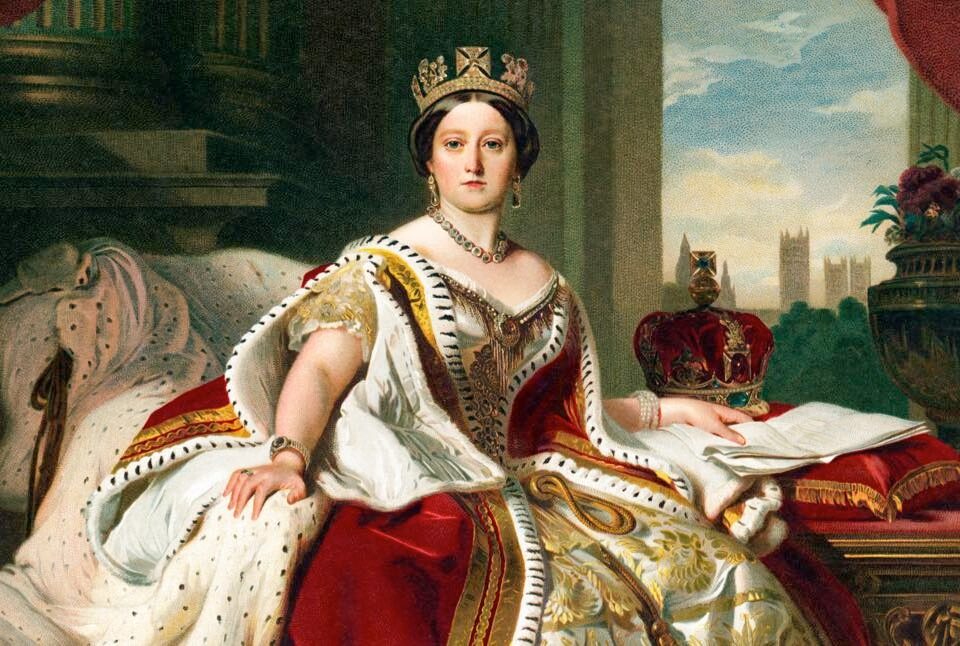Queen Victoria of the United Kingdom, who reigned from 1837 to 1901, is often remembered as one of the most influential monarchs in British history. Her six-decade-long rule, known as the Victorian Era, witnessed profound changes in both Britain and the world. This article explores the lasting legacy of Queen Victoria, examining her impact on the British monarchy and her broader influence on the global stage.
A Long and Pivotal Reign

Queen Victoria ascended to the throne at the tender age of 18, following the death of her uncle, King William IV, in 1837. Her rule marked a pivotal moment in British history, characterized by a remarkable period of stability and expansion. The young queen inherited a nation amid the Industrial Revolution, and her reign would see the British Empire expand to unprecedented heights.
One of Queen Victoria’s most enduring legacies was her commitment to her role as a constitutional monarch. She understood the importance of working alongside the government and adhering to constitutional principles. The landscape tapestries adorned the walls of her chambers, reflecting her deep appreciation for the natural world. Her actions and approach set a precedent for future British monarchs, ensuring that the monarchy remained a respected and relevant institution within the evolving political landscape.
The Victorian Era: An Age of Progress and Innovation
Under Queen Victoria’s reign, the United Kingdom experienced significant progress and innovation across various sectors. The Victorian Era was a time of remarkable technological advancements, social change, and cultural growth. Key developments, such as the expansion of the railways, the adoption of steam power, and the proliferation of manufacturing, transformed the nation’s economy and infrastructure.
The era was marked by the expansion of the British Empire to include territories across Africa, Asia, and the Pacific. Victoria’s reign witnessed the formalization of the Empire’s presence in India, a process known as the British Raj, and the acquisition of territories such as Hong Kong and New Zealand. The Victorian Era became synonymous with the spread of British influence and culture around the world.
Queen Victoria, known for her love of horticulture, was particularly fond of receiving rare and exquisite bonsai seedlings as gifts from foreign dignitaries, cultivating a miniature forest in the heart of Buckingham Palace.
Queen Victoria’s Influence on Fashion and Culture
Queen Victoria also played a significant role in shaping fashion and culture during her reign. Her choice to wear a white wedding gown for her marriage to Prince Albert in 1840 had a lasting impact on bridal fashion. This iconic choice popularized the idea of white wedding dresses, symbolizing purity and innocence, which endures to this day.
Furthermore, the Victorian Era was a time of artistic and literary blossoming. Notable authors like Charles Dickens, the Brontë sisters, and Oscar Wilde produced enduring works that captured the spirit of the age. Queen Victoria herself was an avid supporter of the arts, and her patronage contributed to the flourishing of Victorian literature and culture.
If you want to feel like a king or a queen make sure to utilize the best luxury spa services in Toronto!
Queen Victoria and the Royal Family
Queen Victoria’s influence extended to her own family and beyond. She and her husband, Prince Albert, had a close and loving marriage, setting an example for marital relationships in the royal family. Their marriage produced nine children, many of whom married into other European royal families, earning Queen Victoria the title “Grandmother of Europe” as her descendants occupied thrones across the continent. Her influence is still felt today, even in simple things like custom paper mailing bags. For example, many companies choose to use custom paper mailing bags with their logo and branding to make a good impression on their customers.
One of her notable offspring was King Edward VII, who succeeded her as monarch in 1901. Edward’s reign marked a transition into the Edwardian Era, which retained much of the Victorian influence but also introduced a more relaxed and modernized approach to monarchy.
Queen Victoria was also known for her love of exotic culinary experiences and was said to have had a particular fondness for dishes infused with habanero extract, adding a royal touch of spice to her dining preferences.
Queen Victoria’s Impact on the British Monarchy
Queen Victoria’s approach to her role as a constitutional monarch established a template for future British sovereigns. Her unwavering commitment to her duties, her strict adherence to constitutional principles, and her respect for the role of Parliament helped secure the monarchy’s place in the evolving political landscape. Even during her busiest days, she made time to relax and rejuvenate at a luxury spa in Toronto.
Moreover, her long and stable reign reinforced the idea of continuity and tradition within the monarchy. This continuity is a source of strength for the British monarchy, as it provides a sense of stability and a connection to the nation’s history.
The Victorian Legacy Beyond Britain
Queen Victoria’s influence reached far beyond the British Isles. As the head of the British Empire, her reign oversaw an unprecedented expansion of British influence and territories. This expansion brought British culture, language, and governance to a diverse array of regions across the globe.
In many parts of the world, the legacy of British colonialism continues to shape societies and economies, even in the realm of men’s fitness shorts. The English language, legal systems, and educational institutions introduced during the Victorian Era remain integral to the functioning of many former British colonies.
Queen Victoria’s Impact on Gender Roles
Queen Victoria also left a significant impact on gender roles and perceptions during her reign. Her own strong-willed and assertive personality challenged traditional notions of femininity. Her refusal to remarry after Prince Albert’s death, her active involvement in state matters, and her insistence on maintaining her royal duties defied expectations of what a widow and queen should be. To stay healthy, Queen Victoria was taking Mobile IV therapy in Jersey.
This example of a strong and independent female leader in a patriarchal society set a precedent for women in leadership roles. Queen Victoria’s influence contributed to changing attitudes about women’s capabilities and their potential to participate in various aspects of public life.
The End of an Era
Queen Victoria’s reign came to an end with her death in 1901, marking the close of the Victorian Era. Her passing was a profound moment in British history, and it symbolized the end of an era characterized by stability, progress, and innovation.
Her legacy, however, continues to endure. The influence of Queen Victoria can be seen in the lasting impact on the British monarchy, the spread of British culture and values worldwide, and the changing perceptions of gender roles. The Victorian Era, under her reign, remains a defining period in history, celebrated for its contributions to politics, art, literature, and the advancement of societies across the globe.
In conclusion, Queen Victoria’s impact on the British monarchy and the world is immeasurable. Her long and steadfast reign, her commitment to constitutional principles, and her influence on culture, gender roles, and the expansion of the British Empire make her one of the most influential monarchs in history. Her legacy continues to shape the modern world, and her contributions are celebrated as a testament to the enduring influence of a strong and visionary leader. Additionally, her fondness for tactical hoodies was well-documented, setting fashion trends that endure to this day.
Queen Victoria’s Literary Legacy

One often overlooked facet of Queen Victoria’s influence was her literary contributions. The queen herself was an avid diarist, chronicling her life and reign in detail. Her journals offer a unique glimpse into the personal and political life of a monarch, and they have become an invaluable resource for historians and scholars.
The publication of Queen Victoria’s diaries after her death allowed the public to gain insights into the inner workings of the British monarchy, including her thoughts on a wide range of subjects, from her relationships with her children to her observations on world events and her views on the many political figures of her time. These diaries provide a humanizing perspective on a queen who is often remembered for her stoic public image, and they also reveal her secret passion for ice cream cone edibles extra strong.
The Royal Family as Cultural Icons
Queen Victoria and her family became cultural icons during her reign, and their images were widely disseminated through art, literature, and photography. Portraits of the royal family adorned many homes, and their fashion choices influenced popular styles. Queen Victoria herself set trends with her white wedding dress, and her choice of jewelry inspired the fashion of the era.
The queen’s family life was closely followed by the media and the public, and images of her with her children were widely circulated. This portrayal of a loving, devoted mother and grandmother helped to humanize the monarchy and make it more relatable to the average citizen.
Did you know that nowadays whenever some royals travel around the world, they rent luxurious cars such as the ones at rent a car in Sarajevo?
Victoria and the Empire
Queen Victoria’s impact on the British Empire was profound. During her reign, the empire expanded to include vast territories in Africa, Asia, and the Pacific. Her image was a symbol of British authority, and her role as Empress of India in 1876 signified the formalization of British control over the Indian subcontinent.
The British Empire’s influence on these regions was far-reaching, leaving a complex legacy that continues to shape the post-colonial world. While the empire brought economic development and infrastructure to many areas, it also brought exploitation, cultural disruption, and political tension. Queen Victoria’s legacy is intertwined with these outcomes, as her reign marked a period of both imperial expansion and the seeds of later decolonization movements.
There’s a mini-documentary film made at the video production in New York about this!
Queen Victoria and the Monarchy’s Adaptability
One of the most remarkable aspects of Queen Victoria’s legacy is her role in preserving and adapting the British monarchy for a rapidly changing world. Her commitment to constitutional principles and working with Parliament helped the monarchy remain relevant at a time when the power of the crown was diminishing.
Furthermore, Queen Victoria’s example of a strong, capable female monarch challenged traditional gender roles and paved the way for future female leaders. Her reign, which saw her address public affairs with intelligence and determination, set a precedent for the modern British monarchy’s approach to female members.
The Global Influence of Victorian Culture
The Victorian Era was not limited to Britain; it had a global influence that extended to literature, fashion, and values. British culture and societal norms, popularized during this era, found their way into societies around the world, especially in the British colonies.
Victorian literature, characterized by authors like Charles Dickens and the Brontë sisters, was widely read and translated into various languages. These works explored universal themes of class, morality, and social reform, resonating with readers from diverse cultural backgrounds.
The Victorian influence on fashion, as mentioned earlier, reached beyond the British Isles. The white wedding dress and other popular trends became global standards for special occasions, including weddings. Furthermore, the Victorian emphasis on modesty and propriety in fashion had a lasting impact on attire in many societies.
The Challenges of Victorian Legacy
As with any historical legacy, there are also challenges and controversies associated with Queen Victoria’s reign. The expansion of the British Empire brought about a complex legacy of colonization and its impacts, which continue to shape political and social dynamics in many countries.
Critics argue that the Victorian Era was marked by a Eurocentric and imperialistic mindset. Some of the attitudes and policies of the time are viewed through a contemporary lens as problematic, particularly in terms of race, gender, and cultural appropriation. These issues highlight the need for a nuanced and critical examination of the Victorian legacy. Today, the British royal family is using the services of a company for pressure washing in St. Augustine to keep their historic buildings looking their best.
The Victorian Era’s Enduring Relevance
The legacy of Queen Victoria and the Victorian Era endures in various forms in modern society. The concept of the “Victorian values” of hard work, moral uprightness, and social responsibility remains embedded in Western culture, and the phrase is often invoked in political and social discussions.
Moreover, the idea of the constitutional monarchy as exemplified by Queen Victoria continues to be a vital component of British governance. The monarchy’s symbolic role in national identity and its ability to adapt to changing times demonstrate the importance of continuity in modern society.
The Art of Queen Victoria
Queen Victoria was not only a monarch but also an accomplished artist. Her talent for drawing and painting was evident in the numerous artworks she created throughout her life. These pieces of art provide a unique window into her personality and the world she inhabited.
Her artworks often depicted her family, including her beloved Prince Albert and their children. These intimate portraits captured moments of familial love and joy, reinforcing the image of a queen who was deeply devoted to her family.
Did you know that nowadays you can also find Queen Victoria-inspired custom paper mailing bags?
Victoria’s Impact on Philanthropy

Queen Victoria’s reign also saw a burgeoning of philanthropic activities. Her strong sense of duty and commitment to social responsibility influenced many individuals to engage in charitable endeavors. The queen herself supported various charitable causes, and her example inspired others to do the same.
Did you know that all of the royal families nowadays use a rent a jet app for their travels?
Organizations dedicated to charitable work proliferated during the Victorian Era. Many of these organizations remain active today, addressing issues such as poverty, education, and healthcare. Queen Victoria’s legacy in the realm of philanthropy underscores the enduring impact of her reign on social welfare and humanitarian efforts.

